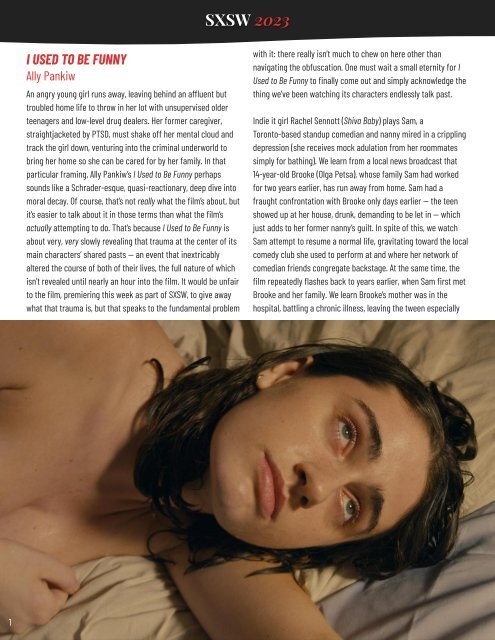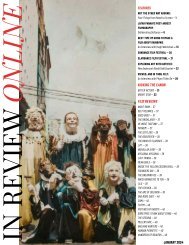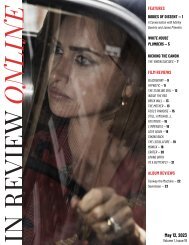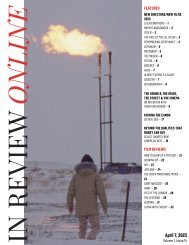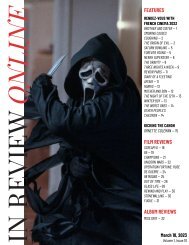You also want an ePaper? Increase the reach of your titles
YUMPU automatically turns print PDFs into web optimized ePapers that Google loves.
SXSW 2023<br />
I USED TO BE FUNNY<br />
Ally Pankiw<br />
An angry young girl runs away, leaving behind an affluent but<br />
troubled home life to throw in her lot with unsupervised older<br />
teenagers and low-level drug dealers. Her former caregiver,<br />
straightjacketed by PTSD, must shake off her mental cloud and<br />
track the girl down, venturing into the criminal underworld to<br />
bring her home so she can be cared for by her family. In that<br />
particular framing, Ally Pankiw’s I Used to Be Funny perhaps<br />
sounds like a Schrader-esque, quasi-reactionary, deep dive into<br />
moral decay. Of course, that’s not really what the film’s about, but<br />
it’s easier to talk about it in those terms than what the film’s<br />
actually attempting to do. That’s because I Used to Be Funny is<br />
about very, very slowly revealing that trauma at the center of its<br />
main characters’ shared pasts <strong>—</strong> an event that inextricably<br />
altered the course of both of their lives, the full nature of which<br />
isn’t revealed until nearly an hour into the film. It would be unfair<br />
to the film, premiering this week as part of SXSW, to give away<br />
what that trauma is, but that speaks to the fundamental problem<br />
with it: there really isn’t much to chew on here other than<br />
navigating the obfuscation. One must wait a small eternity for I<br />
Used to Be Funny to finally come out and simply acknowledge the<br />
thing we’ve been watching its characters endlessly talk past.<br />
Indie it girl Rachel Sennott (Shiva Baby) plays Sam, a<br />
Toronto-based standup comedian and nanny mired in a crippling<br />
depression (she receives mock adulation from her roommates<br />
simply for bathing). We learn from a local news broadcast that<br />
14-year-old Brooke (Olga Petsa), whose family Sam had worked<br />
for two years earlier, has run away from home. Sam had a<br />
fraught confrontation with Brooke only days earlier <strong>—</strong> the teen<br />
showed up at her house, drunk, demanding to be let in <strong>—</strong> which<br />
just adds to her former nanny’s guilt. In spite of this, we watch<br />
Sam attempt to resume a normal life, gravitating toward the local<br />
comedy club she used to perform at and where her network of<br />
comedian friends congregate backstage. At the same time, the<br />
film repeatedly flashes back to years earlier, when Sam first met<br />
Brooke and her family. We learn Brooke’s mother was in the<br />
hospital, battling a chronic illness, leaving the tween especially<br />
1


